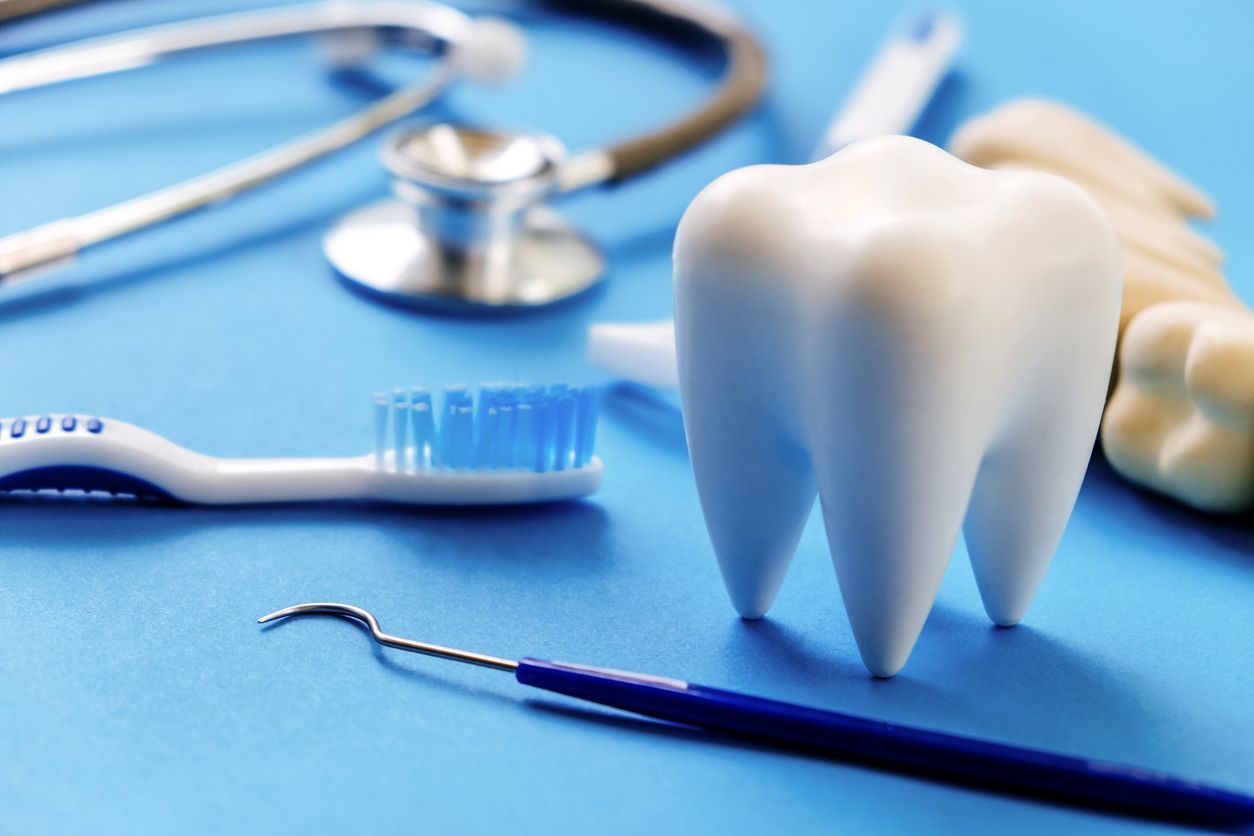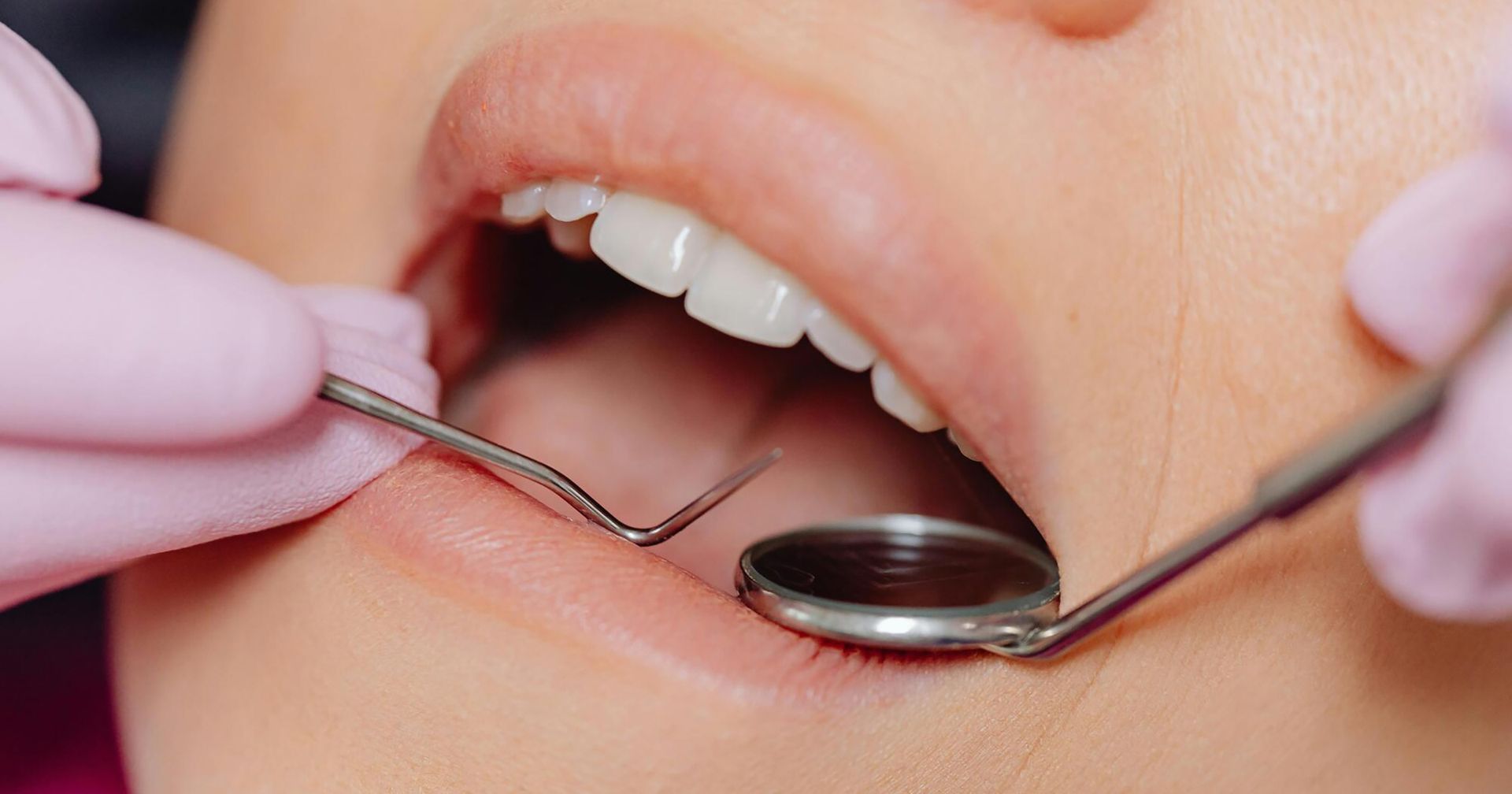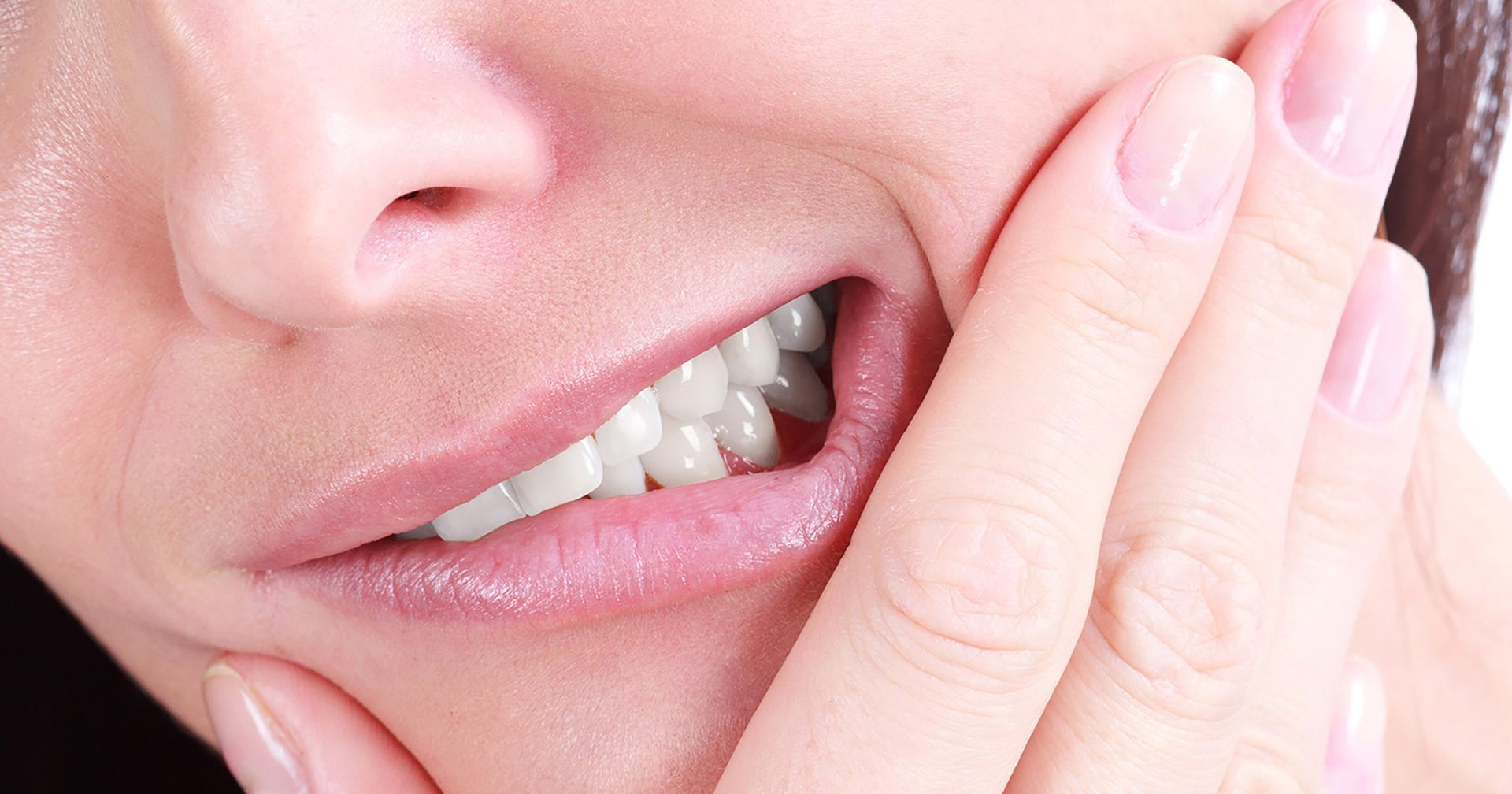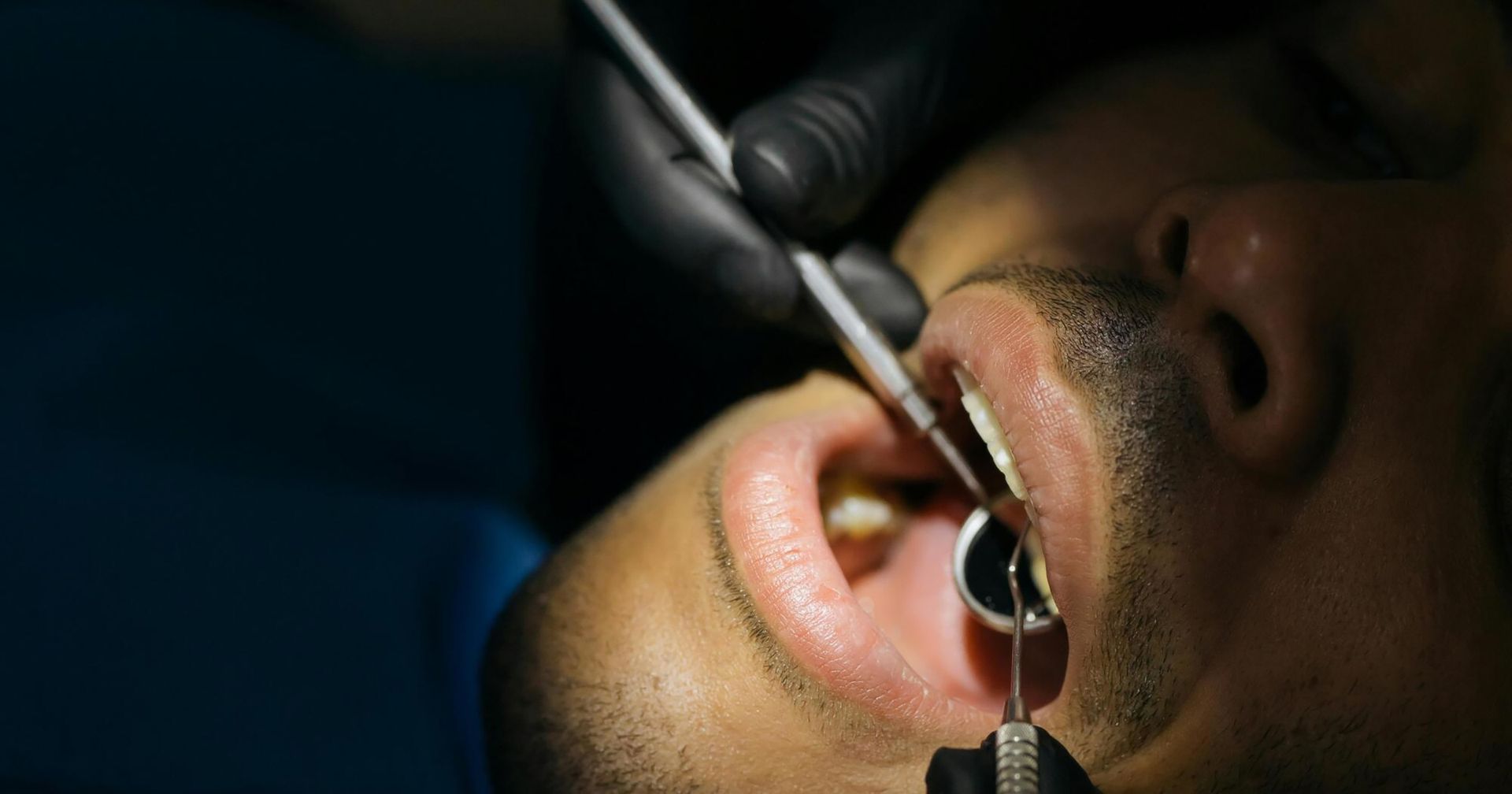A tooth prevented from erupting over the gum or stuck under the gum is called an impacted wisdom tooth. Discover symptoms, how dentists treat and relieve pain.
When your wisdom teeth develop, it can be an event that's completely neutral, or it can send you into a world of pain.
If you have an impacted wisdom tooth, it's caused when your tooth can not erupt through the gum and gets stuck. This condition can be extremely painful and often even downright excruciating.
Read on to learn more about why this happens, what the symptoms are, and what your dentist can do to give you some relief.
What Causes Impacted Wisdom Teeth?
Your wisdom teeth are technically referred to as the third molars located at the back of your mouth. Sometimes when they grow, they don't have enough room to develop or emerge from your gums correctly.
The wisdom teeth are the last adult teeth to erupt, and most people have four of them. Two are located on the top of the mouth, and two are found on the bottom, in the very back of your jaws.
When these teeth become impacted, it can not only be painful but can also potentially damage the other teeth in your mouth. Some people may not notice any symptoms, but that doesn't mean there is no cause for concern. Problems can arise when you are unable to clean these teeth, making them more prone to decay and gum disease.
If you have a wisdom tooth (or several) that is impacted, your dentist may recommend a few different treatment options. One well-known option is wisdom tooth removal, where your oral surgeon extracts the impacted tooth from your gums. It's important to talk to your dentist or oral surgeon as soon as you start to notice symptoms of an impacted wisdom tooth.
Signs and Symptoms
If you have impacted wisdom teeth, you may not notice any symptoms at all. For others, you'll begin to notice a problem when the tooth gets infected or damages other teeth in your mouth.
Some of the most commonly experienced symptoms of impaction include:
- Your gums become swollen or are deep red in color
- The gums are especially tender and possibly bleeding
- You experience unusual pain in the jaw that radiates
- The jaw begins to swell in size and doesn't go down
- Unusually bad breath that isn't fixed with regular oral hygiene
- You notice an unpleasant taste even after brushing, flossing, and using mouthwash
- It's more difficult to open your mouth or even painful
If you're experiencing any of these symptoms, you could have impaction in one, some, or all of your wisdom teeth.
If you are not experiencing any of the above symptoms, you may still be able to tell if your wisdom tooth is impacted. You can use your tongue to feel along the back of your gums where the wisdom teeth should be. If you can feel a bit of tooth that is just barely sticking out of your gums, that is likely a partially impacted wisdom tooth (meaning the wisdom tooth started to erupt from your gums but didn't make it all the way).
Another way to determine if your wisdom tooth might be impacted is to count. Most adults have 32 teeth, including four wisdom teeth in the very back of the jaws. If you count your teeth and you have less than 32, there are two likely reasons why: an impaction, or you were born without them.
Of course, the best way to determine if you have a wisdom tooth impaction (or if you were born without them) is to schedule an appointment with Galvez Dental for a thorough checkup and cleaning.
Possible Complications
Without wisdom tooth removal or other treatment, impacted wisdom teeth can cause a myriad of dental health problems. First, if your jaws do not have enough space for your wisdom tooth to erupt, it will push against other molars in your mouth, which may damage the wisdom tooth or the teeth against which it's pushing.
Another risk is your wisdom tooth may be growing in at an odd angle that causes it to push against your other teeth. When this happens, your teeth become "crowded" because there is not enough space for all of them. This can look like your teeth are overlapping, or just plain crooked, due to your wisdom tooth pushing its way out in the wrong direction. This also increases the risk of infection, since crowded teeth are more difficult to keep clean.
Sometimes, poor oral hygiene or infection can lead to an oral cyst. This is caused by a buildup of bacteria, and it appears like a small sac of fluid that grows on your gums or jaw. This cyst can be painful and cause damage to your teeth, nerves and even your jawbone.
Another complication is rapid tooth decay. Since the wisdom teeth are a lot harder to reach and clean, especially if they are impacted, it's easier for food and bacteria to get trapped in the crevices between your teeth. Without proper cleaning, the bacteria will build up and eat away at your tooth, causing decay.
Finally, a wisdom tooth that is impacted can also increase your likelihood of contracting gum disease, also known as gingivitis or periodontal disease. This happens when a buildup of bacteria creates an infection in your gums and the bone around your teeth, which is too much for your body to handle on its own. That means it will not clear up without professional treatment from a dentist.
Solutions
In some cases, you may not need to have a wisdom tooth removal, even if it is impacted. But for most patients, they will likely need surgical extraction in order to get relief. This can be done by a dentist or an oral and maxillofacial surgeon.
Wisdom tooth removal is done on an outpatient basis. The dentist or oral surgeon will give you either local or general anesthesia to help numb the area so you don't feel anything.
The surgeon will create an incision in your gums. They will remove any pieces of bone that could be blocking the tooth. Next, they'll begin the process of removing the tooth itself.
After surgery, your oral surgeon will stitch the incision closed and pack the empty tooth socket with medical gauze. If you already have signs of infection, you'll likely need to take an antibiotic before surgery to ensure that the infection is gone.
After surgery, you'll need to be very cautious about dry sockets. This painful condition can form if you smoke cigarettes or drink through a straw while you heal.
Aftercare
You may be prescribed pain medication after your oral surgery. Make sure you take this medication as prescribed to help you cope with any possible pain.
Most people should see an improvement in pain and swelling after a few days. Eat only soft foods for the first few days like soup, jello, or mashed potatoes.
Monitor your condition closely and if you notice any increase in pain or swelling, call your dentist immediately. While the process might be unpleasant, you'll be glad when you are able to get relief from the pain that the impacted teeth created.
Your oral surgeon should provide you with a detailed list of the do's and don'ts of surgery aftercare. Follow the instructions closely so you can heal faster.
Take Care of Your Teeth
If you're an adult who's never had their wisdom teeth removed, pay special attention to your oral health. Impacted wisdom teeth don't have to be a miserable experience as long as you get the right treatment.
Whenever you notice unusual symptoms or any of the symptoms listed above, be sure to contact your dentist as soon as possible. They can guide you through the process and help determine the best way to help you get the relief you need.
For more information about dental care or to book an appointment with our clinic, visit our website and call us today.










